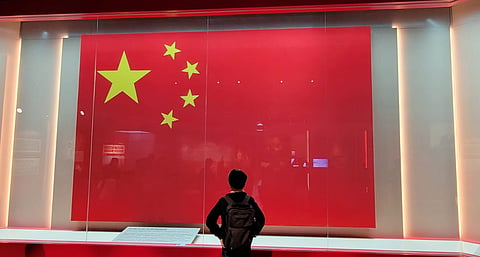

China's new K visa program, set to launch on October 1, 2025, targets young foreign graduates in science, technology, engineering, and mathematics fields.
The initiative allows entry, residence, and employment without requiring a sponsoring employer, offering long-term residency, tax benefits, housing support, and access to international-standard schooling for dependents.
This rollout comes shortly after the United States imposed a $100,000 annual fee on new H-1B visa applications, a policy change announced on September 19, 2025, that exempts renewals and existing holders but raises costs for first-time applicants.
Beijing's move aligns with efforts to position China as an open hub for foreign investment amid trade tensions.
Recent measures include opening sectors to overseas investors, visa waivers for citizens of most European countries, Japan, and South Korea, and reciprocal agreements with 75 nations.
International trips to and from China surged 30.2 percent in the first half of 2025, with visa-free entries up 53.9 percent.
Analysts view the K visa as a counter to U.S. restrictions.
It eliminates employer sponsorship hurdles, enabling multiple entries and flexible activities.
Other nations, including Germany, the United Kingdom, Canada, South Korea, and New Zealand, have also eased rules to attract skilled migrants displaced by H-1B changes.
China's approach complements programs for top-tier experts and repatriation incentives, such as home-purchase subsidies and signing bonuses up to 5 million yuan ($702,200), which have drawn back U.S.-based Chinese STEM professionals.
Despite its appeal, the K visa faces obstacles.
Guidelines specify vague requirements for age, education, and experience, with no details on financial incentives, employment facilitation, permanent residency paths, or family sponsorship beyond dependents' schooling.
China rarely grants citizenship to foreigners, and most tech firms operate in Mandarin, posing language barriers for non-speakers.
Political tensions between India and China may limit Indian applicants, though recent diplomatic thaws and affordable education programs have boosted interest.
Indian students in China, numbering 20,000 to 25,000, primarily study medicine, with growing enrollment in engineering and artificial intelligence.
Experts note that while the visa could embed young innovators into China's ecosystem, cultural and trust factors may prevent it from becoming a top destination immediately.
China's immigrant population remains small at under 1 percent, compared to 15 percent in the U.S., suggesting limited policy shifts toward mass immigration.
Still, even modest gains in attracting global tech talent could enhance Beijing's competitiveness in cutting-edge fields.